

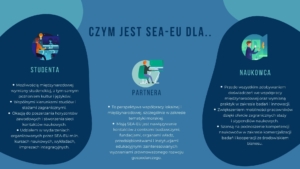
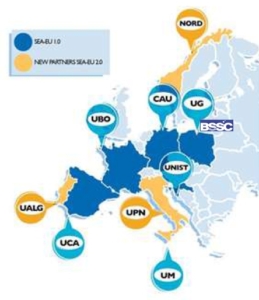
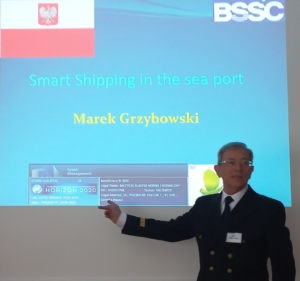
SEA EU executive-dossier 20220722
Dear Associated Partner of SEA-EU:
It is a pleasure to contact you to share some good news. As you know, we have been waiting for the date set by the European Commission for the resolution of the call to renew our Alliance.
I am pleased to announce that today, 27th July, our 2.0 proposal has been approved with 100% of the funding and a score of 90/100.
We have succeeded. We are advancing together, SEA-EU is growing in number of partners and through the recognition of our proposal by the European Commission with positive feedback and awarding SEA-EU their label and funding.
You, as the main implementers of each of the tasks that are carried out in SEA-EU, can feel more than proud to be part of one of the selected proposals.
I want to make a collective recognition because SEA-EU would not be possible without each of the pieces that make it up: you, of course, without the people who put everything in place, we would not be able to carry out this project. All the bodies that manage the infinite number of tasks involved, as well as the whole community that supports us and that little by little is integrating the SEA-EU identity into all our partner universities.
But allow me to make a special acknowledgement. I would especially like to thank the group of people who were appointed to form the Task Force Group and who devoted many hours to designing this proposal for the future.
Speaking of the future, I would like to end this message with a look at the horizon. We have 4 years ahead of us to continue building, dreaming and creating together. A path to keep making SEA-EU a space in which each of us, as individuals and as organisations, grow thanks to the momentum that is generated when the common whole is much more than the sum of its parts.
An executive summary of the 2.0 proposal can be found here. This can be used, among other things, to increase the sense of belonging and engagement within the university community, explaining our objectives to the different people working at the university, or to capture the interest of other stakeholders.
Thank you very much and congratulations.
Fidel Echevarria
General Coordinator of The European University of the Seas (SEA-EU)
University of Cadiz
Rectorate
Edificio Hospital Real. Plaza Falla, 8. E11.003- Cádiz
Spain
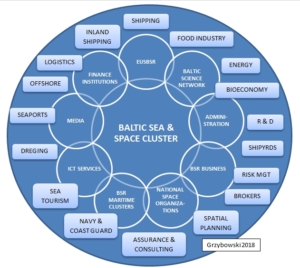
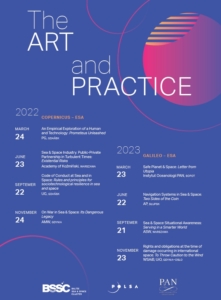
Research Potential Database and Shared Infrastructure Database for the SEA-EU Alliance
The idea of establishing the European University of the Seas – SEA-EU has brought multiple fundamental changes to the inter-university cooperation framework, especially in the fields of research, education (its quality), management and the approach to sharing resources within the consortium. Therefore, one of the most important effects of the cooperation was the creation of a Research Potential Database and Shared Infrastructure Database. Collecting the data concerning research areas linked with research groups in the six universities started in April 2020. The task was coordinated by the University of Gdańsk team led by Vice-Rector for Innovation and Liaison with Business and the Community, Professor Krzysztof Bielawski.
The initiative helped to develop a detailed directory of research groups and research areas of different consortium members to identify common and strategic topics. The gathered data laid the groundwork for the implementation of future activities and will help forge ties between researchers from six partner universities. Eventually, the platform simplified the process of finding potential partners when applying for mutual projects’ funding.
The database also made it possible to enter information about the infrastructure owned by partners. It can be used to search for infrastructure resources by keywords or scientific discipline, and to present people or entities that have provided detailed information.
The platform is being continuously updated, there are more than 370 research groups and more than 60 infrastructure positions registered so far. The researchers from all partner universities can browse and find research groups to start a collaboration.
